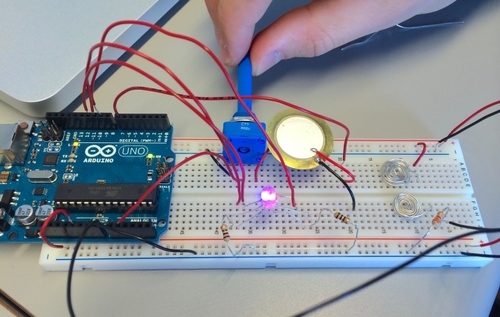Lie Detector
Here is a snapshot of personal and school projects I've worked on.


Tools Used:
- Arduino Uno microcontroller
- Piezo electric sensor
- Potentiometer
Problem:
Build a circuit, either based completely on gates or with the Arduino Uno
microcontroller, in approximately 10 hours.
Solution:
For my first year Digital Systems project, my two group members and I decided to program and build a lie detector using an Arduino Uno. This was a sizeable project considering we had never worked with microcontrollers prior to the circuits course. However after countless late nights, frustrated wire-cutting sessions, and banging on tables while debugging, we were able to assemble a functioning lie detector.
Implementation:
As a person becomes nervous—for example, when telling a lie—their skin resistance decreases. We can measure this resistance using an analog input and use an LED and buzzer to indicate a lie.
More details about this project can be found on my Github.
Images from top to bottom:
1. Assembled circuit
2. Testing functionality of the circuit
